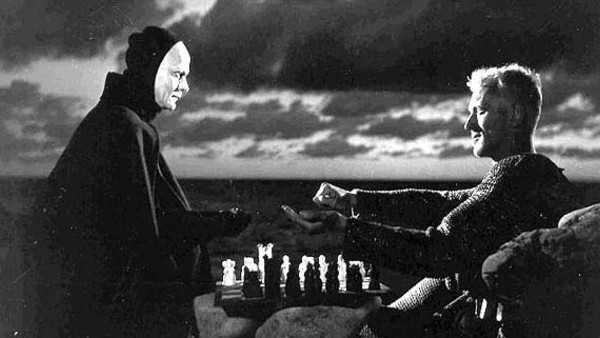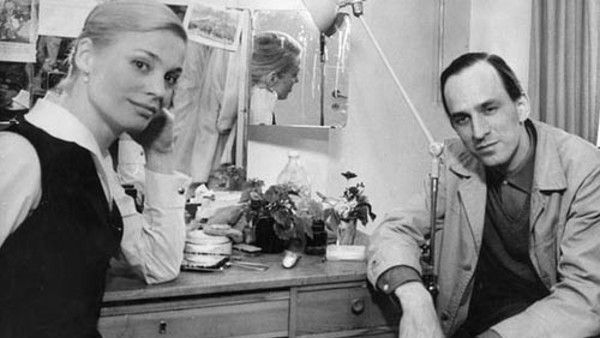A Beginners Guide to Ingmar Bergman
To celebrate Film4’s Ingmar Bergman season starting tonight on Film4, What Culture! presents a beginners guide to one of the most influential directors in the history of cinema.
 To celebrate Film4s Ingmar Bergman season starting tonight, Monday July 4th, I decided to use the director as the first subject in this new regular weekly series of beginners guides for WhatCulture! Ingmar Bergman is one of the most influential directors in the history of cinema. Thematically and stylistically his work lives on through various filmmakers such as Francis Ford Coppola, Pedro Almodovar and most famously Woody Allen. He began his career in his home country of Sweden, where he worked as a script writer for a production company in the early 1940s. The company asked him to watch a regular dose of American films and copy the Hollywood way of script writing but Bergman, a young man with ambitions far greater than those around him, grew frustrated as the movies he had to watch all seemed fake and superficial to him. The narrative structures too linear, the characters too one dimensional and the cinematography too bland and forgettable. In retaliation to this he wrote his own scripts which dealt with issues he felt cinema was obliged to address. He also felt that the audiences deserved better quality and deeper stories. Bergmans movies mainly deal with isolation, loneliness, religion and mortality - themes which he always brought to the forefront and dealt with in depth. Other filmmakers of this time normally shied away from delving too deep into these ideas and more often than not left issues such as these for the audience to interpret and ponder. Bergman however reveled in these ideas and in doing so was able to produce some of the deepest, darkest character studies in cinematic history. His films deal with frighteningly complex issues, such as the loss of passionate youth (Summer Interlude), battling religion with reason (Through a Glass Darkly) and spiritual death (Cries and Whispers). He explored these issues and dramatises them with great theatricality. But please dont get the wrong idea. Even though these films may sound awfully deep and complex, Bergman is first and foremost an entertainer. Not that Im saying his films work as entertainment are on the same level of, say, a James Bond movie but what I mean is that Bergman can take these deep, dark, depressing cerebral themes and somehow make the film feel like a worthwhile experience. They hold your interest and make sure that you are invested in the characters by getting so deep into their heads and making them so flawed and personal that when the film ends you feel a sense of satisfaction for following them on their journey. When lesser films deal with these themes, the finished films can often come off as boring and pretentious, with Bergman this is not the case.
To celebrate Film4s Ingmar Bergman season starting tonight, Monday July 4th, I decided to use the director as the first subject in this new regular weekly series of beginners guides for WhatCulture! Ingmar Bergman is one of the most influential directors in the history of cinema. Thematically and stylistically his work lives on through various filmmakers such as Francis Ford Coppola, Pedro Almodovar and most famously Woody Allen. He began his career in his home country of Sweden, where he worked as a script writer for a production company in the early 1940s. The company asked him to watch a regular dose of American films and copy the Hollywood way of script writing but Bergman, a young man with ambitions far greater than those around him, grew frustrated as the movies he had to watch all seemed fake and superficial to him. The narrative structures too linear, the characters too one dimensional and the cinematography too bland and forgettable. In retaliation to this he wrote his own scripts which dealt with issues he felt cinema was obliged to address. He also felt that the audiences deserved better quality and deeper stories. Bergmans movies mainly deal with isolation, loneliness, religion and mortality - themes which he always brought to the forefront and dealt with in depth. Other filmmakers of this time normally shied away from delving too deep into these ideas and more often than not left issues such as these for the audience to interpret and ponder. Bergman however reveled in these ideas and in doing so was able to produce some of the deepest, darkest character studies in cinematic history. His films deal with frighteningly complex issues, such as the loss of passionate youth (Summer Interlude), battling religion with reason (Through a Glass Darkly) and spiritual death (Cries and Whispers). He explored these issues and dramatises them with great theatricality. But please dont get the wrong idea. Even though these films may sound awfully deep and complex, Bergman is first and foremost an entertainer. Not that Im saying his films work as entertainment are on the same level of, say, a James Bond movie but what I mean is that Bergman can take these deep, dark, depressing cerebral themes and somehow make the film feel like a worthwhile experience. They hold your interest and make sure that you are invested in the characters by getting so deep into their heads and making them so flawed and personal that when the film ends you feel a sense of satisfaction for following them on their journey. When lesser films deal with these themes, the finished films can often come off as boring and pretentious, with Bergman this is not the case. 


